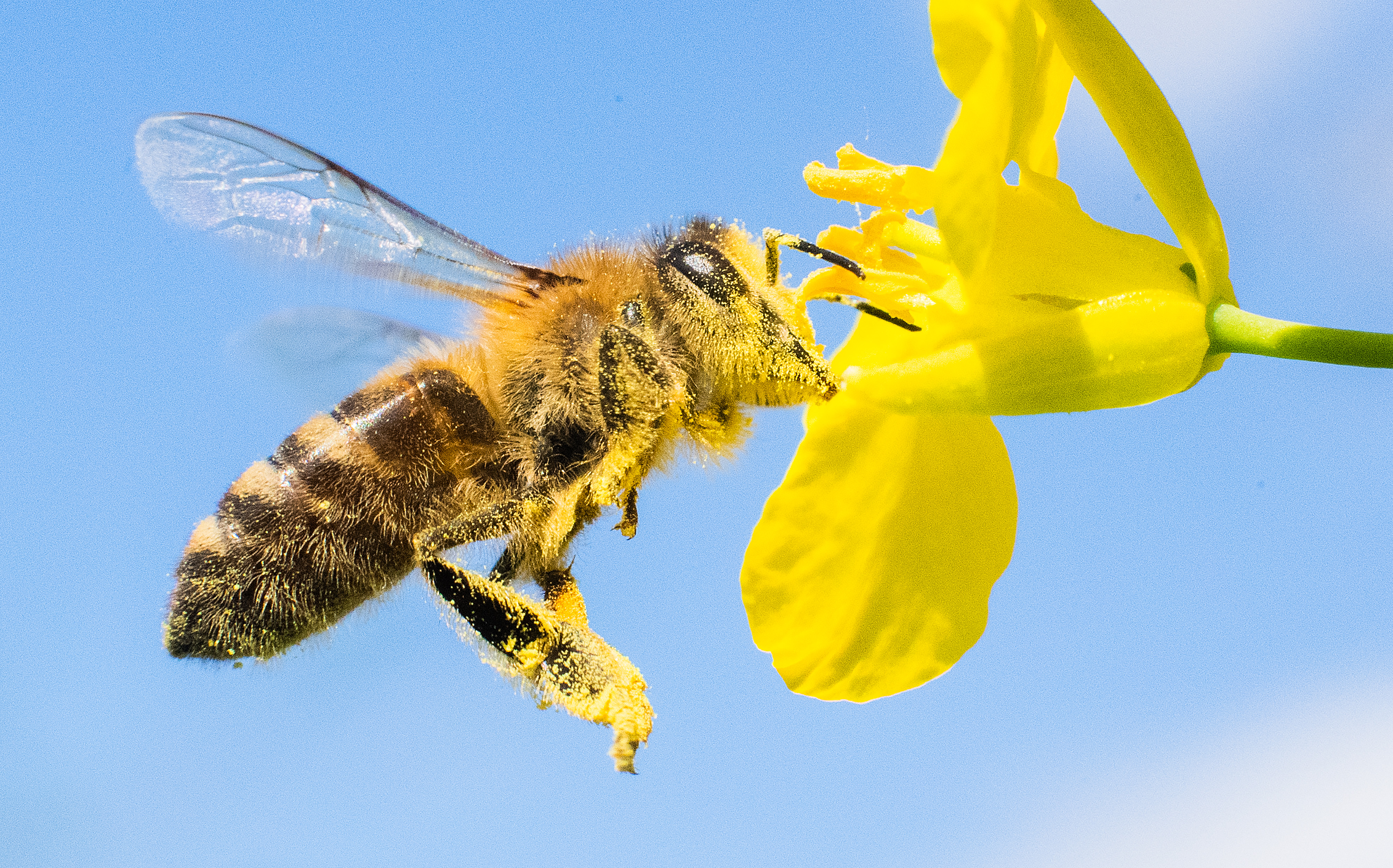
Helping crops survive heatwaves

Global warming threatens both the yield and survival of crucial crops. By understanding how extreme heat impacts plant genetics, researchers aim to breed in more resilience.
Published 22 February 2021
On hot summer days, the lucky ones among us can rely on air conditioning, fans or maybe even a swim to cope with high temperatures.
But the next time you reach for the AC remote, spare a thought for other lifeforms experiencing extreme heat, but can’t do anything to get away from it – like plants – because we all have a warmer future in store.

The Intergovernmental Panel for Climate Change (IPCC) predicts we will see a 3.7°C increase in average global temperature by the end of this century (plus or minus 1.1°C) and we have already experienced a 1°C rise since 1880.

A team from the University of Melbourne is studying what makes some plants more able to cope with extreme heat, with the aim of developing new plant varieties that are resilient to heat stress.
“When we consider that we get most of our food, fibre and shelter from plants, it’s clear that helping them adapt to increasing temperatures is vital,” says Professor Prem Bhalla from the Faculty of Veterinary and Agricultural Sciences.
“We know that increased temperature during particular stages of plant growth negatively affects plant development, and that this can lead to a loss in crop productivity and yield,” says Professor Bhalla.
“But to help plants adapt to higher temperatures, we need to go right back to the start, to understand which genes are involved in the first stages of both positive and negative responses to extreme heat.”
The research team, that also includes PhD candidate Neeta Lohani and Professor Mohan Singh studied the effect of extreme heat on canola, Australia’s third largest broadacre (large-scale) crop and one of significant economic importance. About 25 per cent of Australia’s canola oil is exported.

“Known as rapeseed in the US, the the rising demand for canola oil for human consumption, industrial uses and bio-diesel production has led to a continuous expansion of its cultivation to drier regions, further increasing exposure to unfavourable weather events,” Professor Bhalla says.

Sciences & Technology
A question of quinoa
“Previous research has shown that the critical temperature for canola growth in field conditions ranges between 27 to 30°C,” she says.
“High temperatures of above 32°C have been shown to particularly affect plant sexual reproduction.”
During this type of reproduction, pollen is carried by insects or blown by the wind from one flower to another in a process called pollination. The pollen reaches a flower and produces a tube that transports sperm to the ovary, fertilising the egg cells (ovules) and ultimately resulting in seeds.
Extreme heat at the time of flowering can seriously reduce plant fertility by impairing pollen development and reducing the receptivity of stigma – the female part through which the pollen tube penetrates and transfers the sperm for fertilisation and seed set.
The reduction in seed yield is a significant issue for canola croppers as the oil is extracted from mature seeds.
“While high temperature is expected to affect both male and female reproductive tissues simultaneously, the basis of heat stress response in the female reproductive tissues remains largely unknown,” explains Professor Bhalla.

“To address this gap in our understanding, we used growth chambers to mimic a heatwave, exposing canola plants to both 30 minutes and four hours at 40°C.”

Environment
We can have urbanisation and enough to eat
The team studied Brassica napus L., a variety of canola that is the third most important oilseed crop produced globally.
“The plants exposed to four hours of extreme heat were used to understand the effects of heat on the plant’s physiology, and the 30 minute heat-exposed plants were incorporated into genetic studies,” Professor Bhalla says.
Now published in the journal Frontiers in Plant Science, the findings show that exposure to the four hours of high temperature drastically reduced the pollen survival (known as viability) to approximately 25 per cent, down from 90 per cent, and also reduced pollen germination (the ability to produce a pollen tube to transfer sperm) to around 10 per cent, down from 62 per cent.
In comparison, the canola plants that weren’t exposed to extreme heat had approximately 90 per cent pollen viability and 62 per cent germination.
When heat stressed pistils (female sexual organs) were pollinated with heat-stressed pollen, the team also saw a drastic reduction in seed germination, the growth of a seedling.
This failed fertilisation and seed set indicates heat-induced changes in the female sexual organs are likely to exert considerable influence over the performance of pollen (the male reproductive counterpart) and ultimately the overall seed yield.

Next, genetic material was extracted from both the male and female reproductive tissues.

Sciences & Technology
Nitrogen pollution: Forgotten element of climate change
In pollen, down regulation – or reduced number of gene products – from genes known to be associated with cell wall organisation and cellular transport appear to be associated with reduced pollen health and integrity, leading to reduced reproductive success and seed set.
Gene expression in the female sexual organs was also found to be affected in what appears to be a stress-induced response to heat.
“The impact of changing the activity of these genes isn’t well understood yet, but we do know that some of the genes are involved in heat and drought tolerance in other plants such as maize and tomato. Further studies are needed, but the goal is to breed this same tolerance into commercial canola plants,” says Professor Bhalla.
“Our results show that short episodes of high-temperature exposure in canola affect some key pathways that regulate genetic activity, as well as disrupting reproductive processes, ultimately translating to yield loss.”
Further investigations into the genes and networks identified in this study are planned, paving the way towards the genetic improvement of heat tolerance and reproductive performance of important canola varieties.
Banner: Shutterstock


